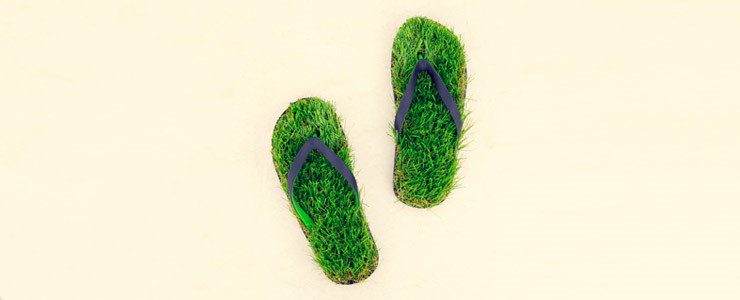
What’s trending? Ethical fashion 2019
Fashion is personal. Whilst some dress for functionality and comfort, others seek individual expression.
All the while, we rarely consider the who, what, where, and why of the clothes we wear. In a world where the personal is increasingly the political, an important new trend is posing these questions to the world of fashion, from design and production to retailing and consumer purchasing. This trend is ethical fashion.
Fashion is, after all, big business. Annual global revenue generated by this sector has been estimated to reach a whopping £1 trillion. Nevertheless, the questions posed to this mega industry have come from a multitude of sources. Issues have been raised around a range of topics, such as working conditions, fair trade, exploitation, sustainable production, animal welfare and the environment.
Fashion sector growth
Hundreds of millions of people are employed in the fashion industry. For some of the major producing countries more than one-third of the entire population work somewhere in the fashion chain. Still, the industry continues to expand. Research by Boston Consulting Group and Global Fashion Agenda suggests there will be further growth of 63% in the sector by 2030.
Growing demand from developing countries will take us to a point where consumers are buying more than 100 million tonnes of garments and footwear every year. The high street clothing industry alone accounts for a huge chunk of retail. To put this into perspective, around 100 million shoppers visit Oxford Street in London every year.
Environmental costs
While this is all good news for the retail sector, it comes at a cost to the environment. Critics argue that regardless of the price tag on the garments, the damaging effects on our planet cannot be ignored. In particular, their criticism of the fashion industry has covered the use of hazardous chemicals, the exploitation of workers, animal cruelty and the production of excess waste.
Statistics released by the Ethical Fashion Forum suggest the Aral Sea, in Central Asia, has decreased to only 15% of its former volume, due to the necessity of large volumes of water for cotton production and dyeing. Indeed, cotton production accounts for 22.5% of all insecticides and 10% of all pesticides used worldwide. There are also risks posed to the health of farmers in this environment.
Not only this, but Greenpeace says most textiles are treated with chemicals such as lead or nickel which can be toxic to the planet and may also be transferred to the skin of the people wearing the finished garments. In addition, hazardous plastic microfibres that come from artificial suede and polyester fabrics are entering the ocean ecosystem, adding to the already huge problems of plastic waste.
Ethical fashion
The backlash regarding the potential hazards of the fashion industry has come in the shape of ethical fashion. There are some exciting new technologies, consumer trends and innovative business models that are leading fashion on to a more sustainable runway.
Water-intensive fibres like cotton are under threat as water scarcity increases. Other fabrics, such as polyester, rely on fossil fuels for production, so as the fuels become scarcer, the fabrics are going to get more expensive.
New materials are being developed that are less resource-dependent, have a longer life-cycle and can be recycled. Lyocell, for example, is manufactured from wood pulp. It creates only a low environmental impact during its production and processing methods, in comparison with other materials.
Major brands
Leading designer Vivienne Westwood is also an advocate of ethical fashion and works by the ethos, “Buy less, choose well, make it last.” Westwood aims to shift demand towards making fewer products that are of a higher quality, so they last longer and result in less total resource use. Making garments that last just three months longer can cut the carbon, waste and water impact by around 3%, according to statistics released by the Waste and Resources Action Programme.
An important principle of ethical fashion is that people should love their clothes so much that they will look after them and wish to keep wearing them for longer. One trend the fashion industry is embracing is the opportunity to personalise and customise clothing using new manufacturing technology, such as 3D printing.
Even large companies can create unique variants to regular designs, using customer input to steer their creations. This is becoming popular in footwear, with leading brands such as Adidas, Nike, Vans and Converse having their own online system so customers can create their own variant of a popular product.
Sustainable fashion origins
This focus on ethical fashion is not totally new, beginning as long ago as the late 1960s, when younger people developed a growing awareness of the human race’s impact on our planet.
Nike hit the headlines for the wrong reasons in 1991, when the company came under fire for the alleged poor working conditions and low wages at one of its factories in Indonesia. This led Nike to make some serious changes to its supply chain. Today, the sportswear giant is one of the leading sustainable companies in the world and has boosted their reputation as an ethical company.
Other major brands are following suit, such as Levi with their Care Tag for Our Planet and Wellthread collections, Gucci, Calvin Klein, Stella McCartney and Puma. The trend towards ethical fashion and sustainability is clear.
Circular economy
The latest trend is for fashion businesses to adopt “circular economy” principles to remedy the limited use of recycling technology. The Ellen MacArthur Foundation argues that if the industry as a whole adopted circular economy principles, this could add €160 billion to its global value by 2030.
Only 18% of garments are currently recycled or reused, but now, major brands such as Marks and Spencer and Zara are introducing collection points for used garments at their stores. Additionally, new technology is ensuring that the recycling of different fibres is becoming more viable. Turning used fabrics into useful materials will reduce the need to produce more virgin fabric, saving money and resources.
New business models are gathering pace, such as Rent the Runway’s idea of using e-commerce to turn expensive, seldom-worn dresses into something that someone else can wear. MUD Jeans has an even more revolutionary idea – it leases its garments to clients for one year and offers a free repair service during the year. After this, customers can swap the jeans for a new pair, returning the old ones for upcycling or recycling.
Innovative and forward-thinking people need the perfect working environment. Offering access to a network of the best global coworking spaces, Headspace Group specialises in flexible workspace solutions that facilitate greater productivity and creativity. For further details, please give us a call on 020 3691 7500.
© Iuliia / Adobe Stock



